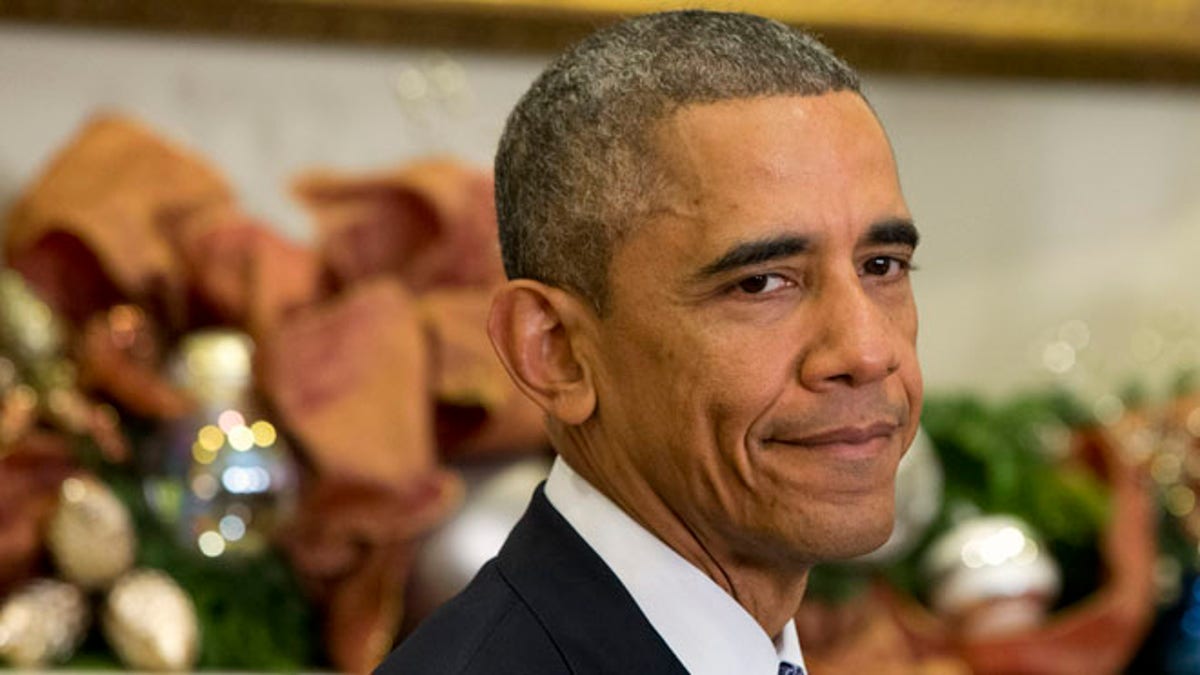
FILE: Dec. 5, 2014: President Obama in the Roosevelt Room of the White House, in Washington, D.C. (AP)
Before any rational discussion of the economic or scientific merits of President Obama’s Clean Power Plan can begin (it will be announced Monday), it is necessary to take his rhetoric about its benefits off the table. The president stated Sunday that his plan is "protecting the world we leave to our children.” To be generous to the president, that is a gross exaggeration.
By the Environmental Protection Agency’s own calculations, the plan will reduce U.S. emissions of carbon dioxide by about 10% from what they are now projected to be in 2030. Since by that time the U.S. will be producing less than 20 percent of global CO2 emissions, the result is at most 2 percent less growth in global emissions.
Based on the calculations of the Intergovernmental Panel on Climate Change, that will make less than one-tenth of a degree of difference in global temperatures.
Contrary to the president’s claims about saving lives and reducing energy costs, his own EPA has found that the drastic cuts they are ordering will increase electricity costs, while doing next to nothing to slow the pace of climate change.
Contrary to the president’s claims about saving lives and reducing energy costs, his own EPA has found that the drastic cuts they are ordering will increase electricity costs, while doing next to nothing to slow the pace of climate change.
What the president will not admit about his ambitious plans is that they will not matter unless the countries actually responsible for future greenhouse gas emissions do far more than they now show any intention of doing.
The world’s future major emitters will be China, India, Brazil -- and of course Russia -- and other rapidly growing economies whose use of fossil fuels is part and parcel of their growth plans.
The Energy Information Administration and the International Energy Agency forecast that by 2030 these countries will be responsible for almost 60% of global greenhouse gas emissions.
Their role is growing fast, not shrinking.
Despite the presidential hoopla about the upcoming Paris climate summit, what the actual preparations show is how little those other major emitters have any intention of doing.
The Paris meeting is not about setting new binding international targets for global emissions. Instead, nations will determine their own efforts and communicate their intentions in documents called “Intended Nationally Determined Contributions (INDCs).”
This in the long run could be a great improvement over futile meetings to discuss mandatory targets, but China, the world’s largest source of CO2, has already stated its intention to keep growing carbon emissions out to 2030.
In other words, the president is claiming that the U.S. must provide a leading example at a time when the most important carbon emitters have already declared they will not follow it.
At the pace those countries are moving, the problem of climate change will be just as great for our children as it is today, no matter what costly regulations the president imposes on the U.S. economy.








































